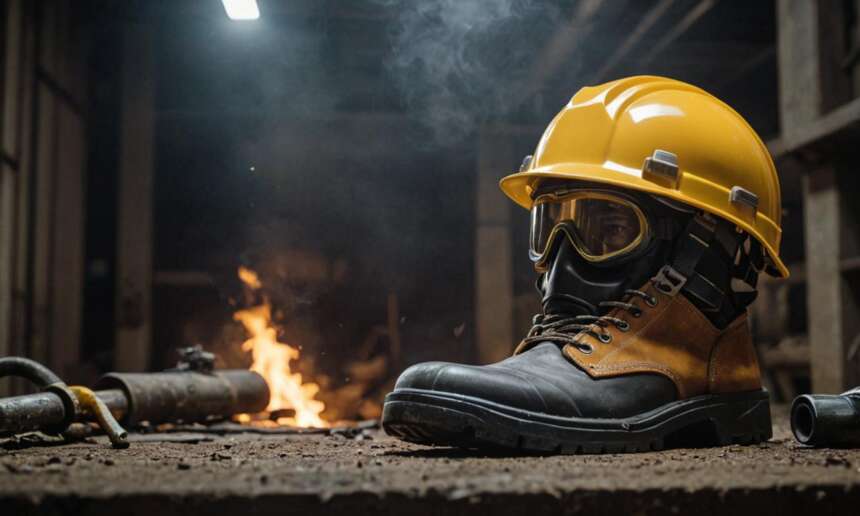Entering the oil rig industry can be an exciting career choice, offering unique challenges and opportunities for growth. If you’re considering pursuing a career on an oil rig, it’s essential to understand the qualifications required for such a role.
Education and Training
While specific educational requirements may vary depending on the position and employer, most entry-level roles on oil rigs typically require a high school diploma or equivalent. However, having additional education, such as an associate’s or bachelor’s degree in fields like engineering, mechanical or electrical technology, or petroleum studies, can enhance your prospects for advancement.
Furthermore, obtaining specialized training related to the oil and gas industry is highly beneficial. This could include certifications in areas such as drilling operations, well control, offshore safety, and emergency response. Many reputable training institutions offer programs tailored to the needs of aspiring oil rig workers.
Experience
While formal education and training are essential, practical experience is often highly valued in the oil rig industry. Many employers prefer candidates with previous experience in related fields, such as construction, maritime work, or military service.
Additionally, gaining experience through internships or entry-level positions in the oil and gas sector can provide valuable insights and skills relevant to working on an oil rig. Demonstrating a strong work ethic, problem-solving abilities, and a commitment to safety can significantly enhance your chances of securing employment.
Technical Skills
Working on an oil rig requires a range of technical skills to operate and maintain equipment effectively. Some of the essential technical skills include:
- Knowledge of mechanical systems
- Ability to use hand and power tools
- Understanding of electrical systems
- Proficiency in reading technical manuals and schematics
- Capability to troubleshoot equipment issues
Physical Fitness and Safety
Oil rig work is physically demanding and often takes place in challenging environments, such as offshore platforms or remote locations. As such, candidates must be in good physical condition and able to perform tasks that may involve heavy lifting, climbing, and prolonged periods of standing or walking.
Moreover, safety is paramount in the oil and gas industry, and employers prioritize candidates who demonstrate a commitment to following safety protocols and procedures rigorously. Obtaining relevant safety certifications, such as the Basic Offshore Safety Induction and Emergency Training (BOSIET), is typically required for offshore roles.
Soft Skills
In addition to technical expertise, successful oil rig workers possess a range of soft skills that contribute to their effectiveness in the role. These may include:
- Communication skills for effective teamwork
- Problem-solving abilities to address unexpected challenges
- Adaptability to changing work environments and schedules
- Attention to detail to ensure tasks are completed accurately
- Time management skills to prioritize tasks and meet deadlines
By cultivating these soft skills, candidates can demonstrate their suitability for the demands of working on an oil rig.
Working on an oil rig offers a rewarding career path for those willing to meet the qualifications and challenges of the industry. While specific requirements may vary, candidates can enhance their prospects by pursuing relevant education, gaining practical experience, and developing essential technical and soft skills.
By prioritizing safety, professionalism, and continuous learning, aspiring oil rig workers can position themselves for success in this dynamic and vital sector of the global economy.
Salary Expectations
One aspect that individuals often consider when contemplating a career on an oil rig is the potential salary. Salaries in the oil rig industry can vary widely depending on factors such as experience, position, location, and the employer’s policies. Entry-level positions may offer salaries ranging from $40,000 to $60,000 annually, while more experienced workers in specialized roles can earn upwards of $100,000 per year or more.
It’s essential to research average salary ranges for different positions within the industry and consider how compensation aligns with your financial goals and lifestyle needs.
Work-Life Balance
Another consideration for those interested in working on an oil rig is the work-life balance. Working on an oil rig often involves extended shifts, typically ranging from several days to several weeks at a time, followed by periods of time off. While this schedule can provide extended periods of rest and leisure, it may also require workers to be away from home and family for extended periods, which can impact work-life balance.
Individuals considering a career on an oil rig should weigh the demands of the job against their personal priorities and commitments outside of work.
Frequently Asked Questions
| Question | Answer |
|---|---|
| Are there opportunities for advancement in the oil rig industry? | Yes, the oil rig industry offers various opportunities for advancement, including progression to supervisory or managerial roles, specialization in specific areas of expertise, and opportunities for further education and training. |
| What are the typical work hours on an oil rig? | Work hours on an oil rig can vary depending on the specific job and location. Many rigs operate on a rotational schedule, with workers spending several consecutive days or weeks on the rig followed by an equal amount of time off. |
| What safety measures are in place on oil rigs? | Oil rigs are subject to stringent safety regulations and protocols to minimize the risk of accidents and injuries. These measures include regular safety training, emergency response procedures, equipment inspections, and adherence to industry best practices. |




